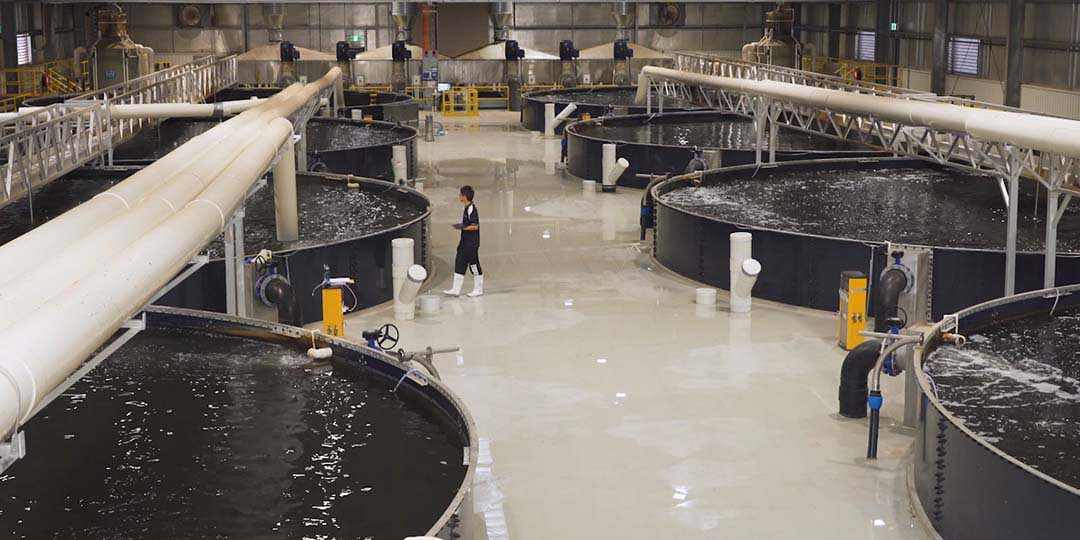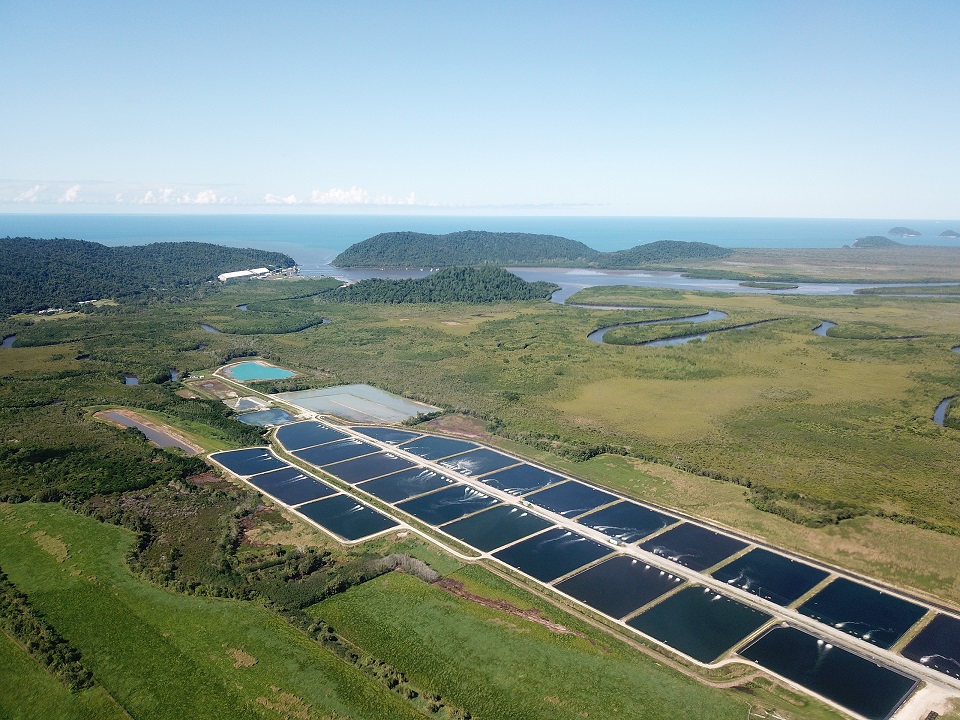BAP Spotlight Story: MainStream Aquaculture
The Global Seafood Alliance’s “Spotlight Stories” highlight certified producers around the world and the stories of the people behind them. This Spotlight Story features MainStream Aquaculture, a BAP-certified barramundi producer in Australia.
Feature by BAP
What inspired you to become involved in the seafood industry?
Dr. Paul Harrison was inspired to feed the world with delicious, sustainably produced fish through best-practice aquaculture technology. Holding a PhD in aquatic biology and having experience working across Australia and abroad, Paul and his mate decided to set up Mainstream Aquaculture in Wyndham, Victoria, Australia in 2001.
Please tell us a little about MainStream Aquaculture.
MainStream has five aquaculture sites in Australia – two in Wyndham Victoria and three in Far North Queensland. The company has also established a farm in Arizona to satisfy the growing demand for the species in the US. The Wyndham farms use state-of-the-art, low-footprint, low-water-use technology. “We located it here because it is so close to the vibrant Melbourne market,” Harrison says. “And because we can source pristine geothermal water from about 300 meters below the ground. This sustainable water source supports our farms from which we can harvest and supply to market in a matter of hours.” The Far North Queensland farms, located in Innisfail and Port Douglas, use salt water from the Coral Sea to grow the fish. These farms feature beautiful wetlands that clean the water used in farming and support an abundance of natural wildlife.
MainStream Aquaculture sells its products under the brand Infinity Blue Barramundi.

How is MainStream Aquaculture involved in the local community?
MainStream works and supports various Universities, especially aquaculture-focused Universities such as James Cook University. We also support culinary & trade-focused programs and love being involved in supporting young food service professionals.
Why did your company choose to become BAP-certified? How has it improved your business?
“Sustainability is one of our core principles; it drives decisions we make in growing the business and ensures that we can supply a great tasting, healthy fish while supporting the planet,” Dr. Harrison says. “Showcasing that we hold sustainability credentials is important to us as a company and producer as well as to the general market.”
Why do you love working in aquaculture?
Dr. Harrison and all the people working at MainStream Aquaculture believe in the positive impacts that aquaculture can have on oceans and wild fish stocks. MainStream Aquaculture’s mission is to feed the world with high-quality fish and supply it in an environmentally sustainable way.

The efficiencies and benefits of aquaculture on the natural environment have been evident in the past 20 years. In particular, the main advantage is that it takes a lot of pressure off wild fisheries. Aquaculture allows us to provide fish as food without stripping the oceans bare.
Dr. Harrison adds that “there is a lot we need to do to make the ocean better. Population growth has gone far enough along that we may never get back to what it was when there were fewer people around. But the ocean can still be a great and healthy environment”. “Our motto is that by eating Infinity Blue Barramundi, you are saving the oceans, one fish at a time!”
About Best Aquaculture Practices
Best Aquaculture Practices is a third-party certification program developed by the Global Seafood Alliance, an international, nonprofit trade association headquartered in Portsmouth, N.H., USA, dedicated to advancing environmentally and socially responsible seafood practices through education, advocacy and third-party assurances. Through the development of its Best Aquaculture Practices and Best Seafood Practices certification standards, GSA has become the leading standards-setting organization for seafood. To learn more, visit www.bapcertification.org.
About the Global Seafood Alliance
The Global Seafood Alliance is an international, nonprofit trade association dedicated to advancing responsible seafood practices through education, advocacy and third-party assurances. Through the development of its Best Aquaculture Practices and Best Seafood Practices certification programs, GSA has become the leading provider of assurances for seafood globally. The organization’s work addresses the full spectrum of responsibility, from environmental responsibility and social accountability to food safety. Established in 1997 as the Global Aquaculture Alliance, GSA is headquartered in Portsmouth, N.H., USA. To learn more, visit www.globalseafood.org
Host Loren Botica of the Monash Tech School podcast interviews Doctor Paul Harrison, Marine biologist, Chief scientist and co-founder of MainStream Aquaculture, along with Professor Richard Reina and Sue Graham on the health of our oceans.
They cover the ever changing health of the ocean, how this diagnosis affects our lives and how technology can help revive these great expanses of water. According to Professor Reina, “change is always happening, but it is the rate of change that is the most significant and worrying factor”.
Mainstream Aquaculture is committed to slowing this change and damage in the oceans, allowing expansive ecosystems to regenerate. Beginning his interview at the 40 minute mark on the podcast, Doctor Harrison details the positive impacts that aquaculture can have on oceans and wild fish stocks. He states that MainStream Aquaculture’s mission is to feed the world with high quality fish and supply it in an environmentally sustainable way.
The efficiencies and benefits of aquaculture on the natural environment were also listed by Dr. Harrison. In particular, “the main advantage is that it takes a lot of pressure off wild fisheries. Aquaculture allows us to provide fish as food without stripping the oceans bare”.
Dr. Harrison goes on to add that “There is a lot we need to do to make the ocean better. Population growth has gone far enough along that we may never get back to what it was when there were less people around. But the ocean can still be a great and healthy environment” .
To listen to the full discussion, the podcast can be accessed via Spotify or on a web browser.